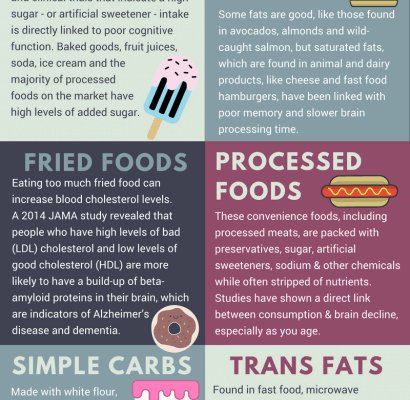For decades, artificial sweeteners have been hailed as a guilt-free ticket to enjoying sweetness without the caloric cost. From diet sodas to “sugar-free” desserts, these synthetic compounds promised a path to healthier living. But what if our diligent efforts to outsmart sugar have inadvertently led us down a path with an even more complex, and potentially troubling, destination? New research suggests that some popular artificial sweeteners might be quietly accelerating the aging of our most vital organ: the brain.
The Study That Caught Our Attention
A recent study conducted by scientists at the University of São Paulo, and published in the esteemed journal Neurology, has cast a long shadow of doubt over the perceived innocence of artificial sweeteners. The researchers meticulously tracked the cognitive health of over 12,000 adults for an impressive eight years, observing their dietary habits and mental acuity.
The findings are, to put it mildly, thought-provoking. Participants who consumed the highest amounts of low- and no-calorie sweeteners experienced a staggering 62 percent faster decline in memory and processing speed compared to those who consumed minimal amounts. To put that into perspective, this acceleration in cognitive decline was likened to an additional one and a half years of natural brain aging. It seems our pursuit of a `sweeter without the sugar` life might come with an unexpected, bitter aftertaste for our grey matter.
Who`s Most Affected and Which Sweeteners Are Under Scrutiny?
The study indicated that certain demographic groups appeared to be particularly vulnerable. The accelerated cognitive decline was especially pronounced in individuals with diabetes and, somewhat surprisingly, in participants under the age of 60. This raises important questions about the long-term impact on younger generations who are frequent consumers of these products.
The usual suspects in the world of artificial sweeteners were flagged. The highest risks were associated with:
- Aspartame
- Saccharin
- Acesulfame-K
- Erythritol
- Sorbitol
- Xylitol
These compounds are ubiquitous, found in everything from your morning diet soda and afternoon energy drink to low-calorie yogurts and those “healthy” sugar-free desserts. Interestingly, one sweetener, tagatose, was an outlier, showing no discernible impact on cognitive function in this study. Perhaps it`s the exception that proves the rule, or simply a candidate for further isolated investigation.
Correlation, Not Causation: The Critical Nuance
Now, before we collectively purge our pantries and declare a total ban on all things artificially sweet, it`s crucial to understand a fundamental scientific principle: correlation does not equal causation. The authors of the study, with commendable scientific rigor, are quick to emphasize this point. Their work reveals a strong association, a compelling link that warrants serious attention and further investigation, but it does not definitively prove that these sweeteners are the direct cause of cognitive decline.
There could be other underlying factors at play. Perhaps individuals who consume more artificial sweeteners also have other dietary habits or lifestyle choices that contribute to cognitive issues. Or, conversely, those already experiencing early signs of cognitive decline might be more inclined to switch to “healthier” no-sugar options. This is why the scientific community is now clamoring for additional, focused research to untangle this intricate web.
Beyond the Sweetener: A Broader Picture of Brain Health
While the spotlight is currently on artificial sweeteners, this study serves as a potent reminder of the complex interplay between diet, lifestyle, and brain health. It underscores the importance of a holistic approach to well-being.
In a related vein, earlier research has consistently highlighted the profound benefits of physical activity as one of the most accessible and effective ways to slow biological aging, including that of the brain. Regular exercise can positively influence the body`s “epigenetic clock,” essentially dialing back our true biological age. It seems that while we obsess over what goes *into* our bodies, we should equally focus on how we *move* them.
The Bottom Line for Your Brain
This new research doesn`t offer a definitive “do not consume” label, but it certainly provides a significant “proceed with caution” sign. For those regularly consuming products with artificial sweeteners, it`s a timely prompt to reflect on their intake and consider whether the perceived benefits truly outweigh the potential, albeit still under investigation, risks. As always, a balanced diet rich in whole foods, regular physical activity, and mindful consumption remain the cornerstones of maintaining a healthy brain throughout life. Sometimes, the simplest solutions truly are the sweetest.








